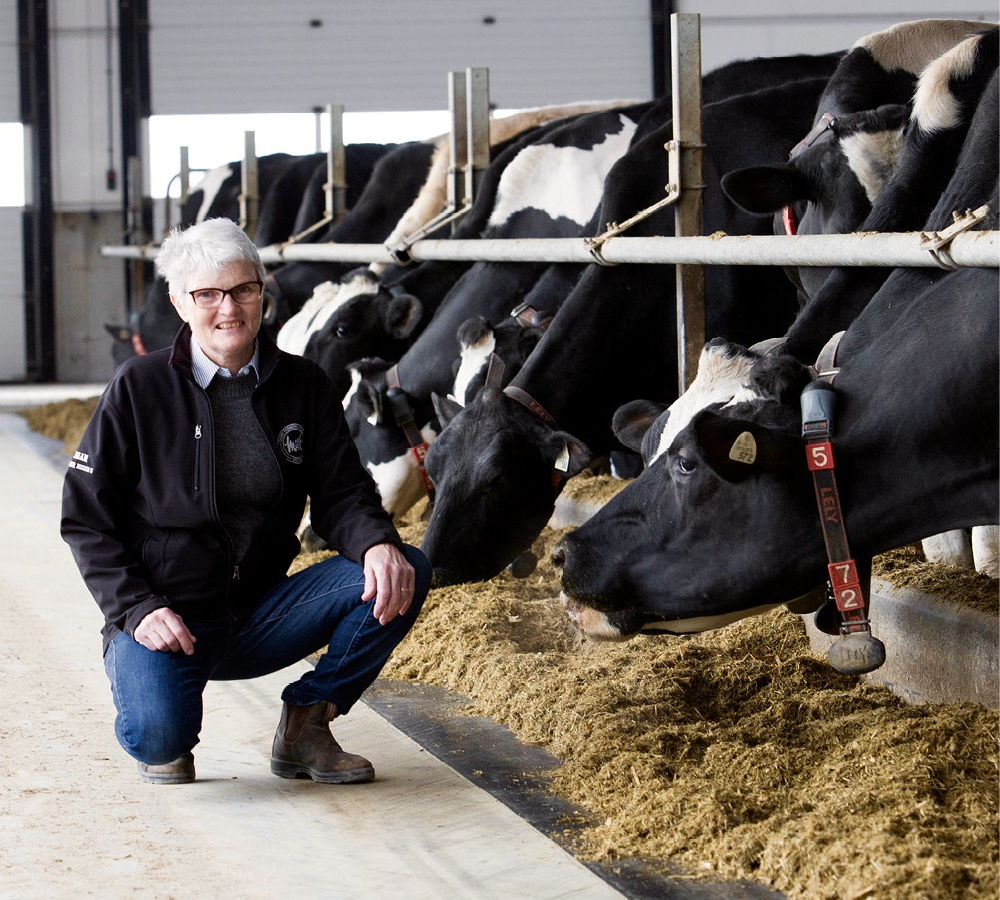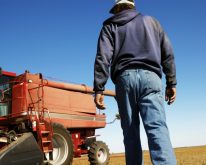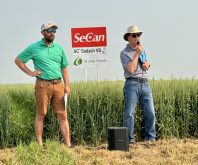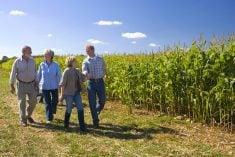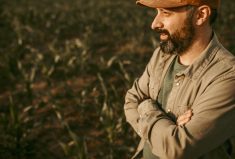As summer approaches and the pandemic is beginning to ease, it’s time to take stock. What got agriculture through the COVID-19 pandemic? Who kept things from falling off the rails?
It turns out farm organizations played an enormous role. You probably know that already. Understandably, these groups invest heavily in making sure their members know where the credit should go.
Except it’s hard for even the most politically active farmer to know what the cumulative effect of all these organizations is for their farm. Or, to put it another way, it’s hard to grasp how much would be lost if these farm orgs didn’t continue to be supported by farmers who take time away from farming to sit on their boards and committees.
Read Also

Youth motivated to find answers to today’s agricultural challenges
This is the first in a series of articles exploring the perspectives and experiences of young people who are finding…
But there’s another side too. That’s the fact that so many farms are so much stronger because their farmers have served as directors or on committees, and they’ve soaked up next-level management and business skills, plus tons of industry insights and connections.
It turns out it’s a two-way street: good for the industry, but with benefits for the farm. Does that mean you should take on a more public role, both for the sake of your industry and also for the sake of your business? For this article, Country Guide asks farm leaders why they became involved, and how their engagement with farm groups translates back to better farm management.
Bonnie den Haan
Ontario dairy producer Bonnie den Haan can’t really remember when she wasn’t involved in one rural or farm organization or another. Like many farmers, 4-H clubs are her earliest memories. After marriage and when her children were young, community groups took up much of her time too.
Her county’s dairy producer committees eventually beckoned, and soon she was serving on these and various working groups as well.
“It was very important to me that I participate,” she says. “I learned a lot from going to those meetings.”
den Haan was elected in 2017 as a board member with Dairy Farmers of Ontario to represent producers from Dufferin, Peel, Simcoe and Wellington. Last June she moved to the helm of Farm and Food Care Ontario with its mandate to build public trust in food and farming in Ontario and across Canada.
Time spent on all those other community activities and organizations prepared her for this new role, and the timing was right on the home front to take it on, with the farm’s management now shifting to their two daughters and son-in-law, she told Country Guide earlier this winter.
den Haan and her husband John, also a farm leader whose current role is chair of the Ontario 4-H Foundation, remain available as needed, but don’t need to be a dominant presence in the farm business anymore, knowing the farm is in good hands. In fact, says den Haan, that works for everyone at this juncture.
“Succession is really difficult, but when you’re sitting on top of each other it’s even more difficult,” she says. “I don’t like to watch my kids skin their knees. It’s better when you’re away from home at a meeting and you just take the calls when things go wrong, or just listen to what the problem is, instead of being there solving the problem.”

Their family is among the many thousands of farm owners who’ve long given of their time and energy to farm groups, believing these organizations are integral to the bigger picture having an impact on their farm business.
Similarly, this past winter Essex, Ont. farmer Brendan Byrne assumed the role of board chair with Grain Farmers of Ontario, the provincial commodity organization, representing 28,000 barley, corn, oat, soybean and wheat farmers. His volunteering with farm organizations began when he was in his early 20s.
His father urged him to get involved, says Byrne, and he first joined their local Soil and Crop Improvement Association. Other family had been part of farm groups in the area and his father was always saying if you have an opinion, you should be at the table.
“My Dad said ‘Why not go check out some of these meetings, we’ve never had the time to do it, and that this might be the perfect time,’” he recalls.
What he liked about GFO as he got involved was that there were a variety of committees to participate in. “It allowed you to dabble your toes in the water, so to speak, to see what the organization was like.” He never went in thinking he’d become a director let alone end up as chair, but GFO fit in well with the kinds of priorities he had for the farm, too.
Meanwhile, Sussex, New Brunswick farmer Kier Miller’s engagement with farm organizations now spans more than 30 years. His first involvement was also with his provincial Soil and Crop Improvement Association. Over time, he’s also served as chair of the New Brunswick Grain Commission and a director with the Atlantic Grains Council. He’s also long been involved with the Soil Conservation Council of Canada, and last winter stepped into the role of chair of the board for the national organization formed in 1987 to advocate for the importance of soil health and soil conservation on a national scale.
“It was the soil and crop association that took me the most places,” he says. “I became a director of the local, was named secretary-treasurer of the local for quite a number of years, and was then named a provincial director. It was through that group I became involved in the Soil Council of Canada.”
It’s a few years back now, but Miller says he’s never forgotten the exhilaration of going to his first Canada-wide farm meetings.
“It was kind of inspiring for a farm boy from New Brunswick to fly to Winnipeg in the middle of the winter and walk into a downtown hotel and meet with farmers from all across the country,” he says.
The skills bonus
That enthusiasm pays off. It’s always good to be pumped. But these farmers would always find something to roll up their sleeves and get charged about. The difference with farm groups is they also grow their ability to channel their enthusiasm and make it pay off.
Like Byrne and den Haan, Miller says it’s always been good both for him and for the farm to be actively involved with farm groups.
“I now have a network of contacts right across this country,” he says. “I can run an idea by someone in Alberta, and that same idea by someone in P.E.I. and get their thoughts on whether it will work, or how to proceed. That’s what I gain the most from any organization. It’s the network of contacts throughout our industry and throughout the country.”
In Drummondville, Que., dairy farmer Julie Bissonnette is just beginning her own agricultural career and engagement with farm groups. Bissonnette is chair of her provincial young farmers organization, La FRAQ — Fédération de la relève agricole du Québec, and a director with the Canadian Young Farmers Forum (CYFF).
Provincial organizations like La FRAQ and the national group CYFF are the networks that provide opportunities for young and beginning farmers to connect, and they also provide forums for discussion and environments for mentorship.
The CYFF formed in 1997 as an affiliation of provincial and territorial young farmer organizations that include relatively new groups such as Yukon Young Farmers, formed in 2011, to Junior Farmers Association of Ontario, founded in 1914.
Bissonnette says both her provincial group and the CYFF provide a really important support for the professionalization of younger farmers, programming that supports the development of their farm management skills, and a voice in an industry where so many of them will be looked to to provide the leadership.
When you’re starting out you may not have many peers close to your age in the farm community immediately around you, so it’s important to make these connections, says Bissonnette, who first joined her provincial group at age 16 mainly to meet other younger farmers.
“At the beginning it was just to have some fun and organize activities and make sure young farmers can see each other, because we don’t always do this,” she says. She’s gone on to national involvement because of that networking, and the personal support and professional development experienced as a participant.
“It’s not just for the farm but for the person that you are,” Bissonnette says. “Networking, promotion and communication… for me, that’s the big part to be involved.”
Byrne says some may feel as though they’re starting with a bit of an empty tool box when they first get involved with any organization, but farm groups definitely help you learn and have good procedural ways to mentor new leadership. You figure out your own personal leadership style, as you acquire more skills around working with others, and make decisions with the group you get involved with.
It’s about developing relationships and learning from others, he says. You eventually find yourself doing things and accomplishing tasks you’d not have thought you’d ever do, he says.
As his father also used to say, “the ‘you’ of five years ago wouldn’t even recognize the ‘you’ of today.” Plus, you grow skills and perspectives that become assets for the farm groups too.
Says Byrne: “Sharing those skills is kind of your obligation to everybody else out there… sharing the best in you, and learning from the best people around.”
den Haan says time and again she’s experienced benefits from her organizational involvement on the farm. “It takes your whole farm to a new level of professionalism,” she says.
“If you can speak professionally, and articulate and crunch numbers and look at balance sheets and you have a better understanding of those things, all of those things just make your business better.”
Both she and her husband have benefited greatly from governance training they’ve had over the years, and it most certainly has made family meetings better.
“If you can take the governance and the relationship training at the board, and the respect for other board members and bring that home, and look at your family members as board members, that’s a huge step,” she says. “It makes all the difference in the world, especially to your family members.”
Work with others around board tables and in committees makes you a better communicator, too, and you acquire the skill to carefully assess and discern appropriate responses when dealing with difficult and volatile matters.
Farm groups are changing their communications styles to meet the increased demands for transparency and accountability, she says.
“I would say every organization is changing,” she says. “When you tackle an issue you have to look at all angles and dig much deeper.”
Along the way, she’s learned to be a better listener, and to hear other points of view.
“Which,” she adds, “is also very important at home.”
Which group?
Bonnie den Haan is always encouraging others to become involved and find the organizations that they’re passionate to support.
“I’m probably a bit pushy that way,” she admits.
Her advice is practical. Learn about different groups, do some research, and find out which ones have a mission and purpose that aligns with your own.
“You have to have a passion for whatever group you’re going to go into and it has to be a personal passion,
or else it’s just time commitment,”
she says. And if it’s a board role you’re contemplating, be clear about the time commitment. It’s important, too to know how much staff support is available to you, she adds.
She admits she is less inclined to press a younger farmer to be involved on a board, only because she knows how few hours there are in a day for farm owners raising young families. “That’s when you should be growing your business instead of growing an organization, but it’s great if you can balance both or have a team at home so that you can do that,” she says.
Yet, as everyone discovered during these past 12 months, it’s now possible to participate in all kinds of forums without ever leaving home.
All organizations have been challenged to keep people highly engaged online, offering interactive opportunities for that all-important networking online — and those efforts have paid off.
Groups across the country have
cut their travel budgets, but they’re also able to draw in a wider array of speakers and expertise.
And the time commitment to be involved has shrunk. They miss the face-to-face connection, of course, but not all the travelling to and fro to meetings.
After the pandemic ends, it’s expected farm meetings will be a hybrid of both physical and online. Says den Haan, “We’ve got virtual meetings down to an art, and we should carry on with that.”
Looking for a change
Forward-looking organizations are also starting to grapple with new issues, including issues like diversity on the farm.
Earlier this year, for instance, Beef Farmers of Ontario (BFO) hammered out a statement of values on diversity, equity and inclusion, calling for an end to systemic racism, as well as discrimination and prejudice based on disability and on sexual orientation, gender and religion.
This is a recognition that the beef sector “is not always a diverse industry, particularly at the farmer and association level,” BFO president Rob Lipsett said when releasing the statement.
“Further along our supply chain, however, there is a great amount of diversity among the people dedicated to ensuring our product makes it to the tables of consumers. Likewise, our consumers are another integral and incredibly diverse group from all walks of life. We feel it is important to be a voice, build bridges, listen, learn and support all members of our community.”
The BFO statement on its website describes the initiative as “a starting point for what needs to be a continually evolving conversation and effort, and ultimately a culture shift within the industry.”

“We have social responsibilities as business owners, and as participants in the value chain,” says BFO board member Jordan Miller, adding that forward-looking organizations don’t ignore what’s going on within the broader community.
“The organizations in this world which die out are the ones that are fighting tooth and nail for what’s always been.”
It will take some time to develop an action plan around this but this will be more than words on paper, Miller says. “The first thing we want to do is listen and admit we don’t have the answers to everything.”
The Grain Farmers of Ontario has also committed their organization to a new culture of diversity, equity and inclusion, with its 2021 Strategic Plan stating their organization “considers equality, diversity and inclusion imperative to future growth.
“The organization understands the great value in differing opinions around the table, formed from varied life experiences. That is how we will connect with new audiences, new markets and new people,” it says.

